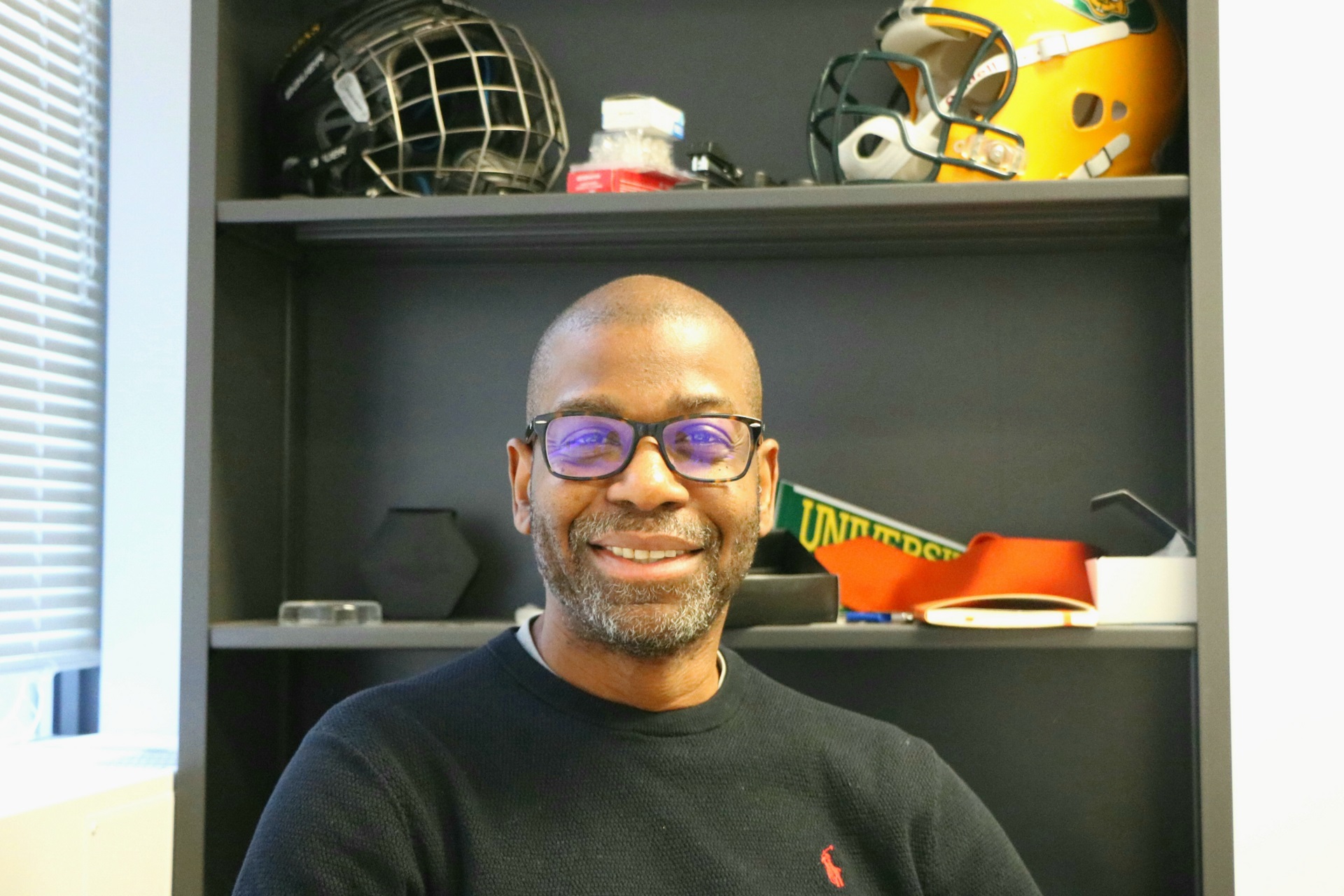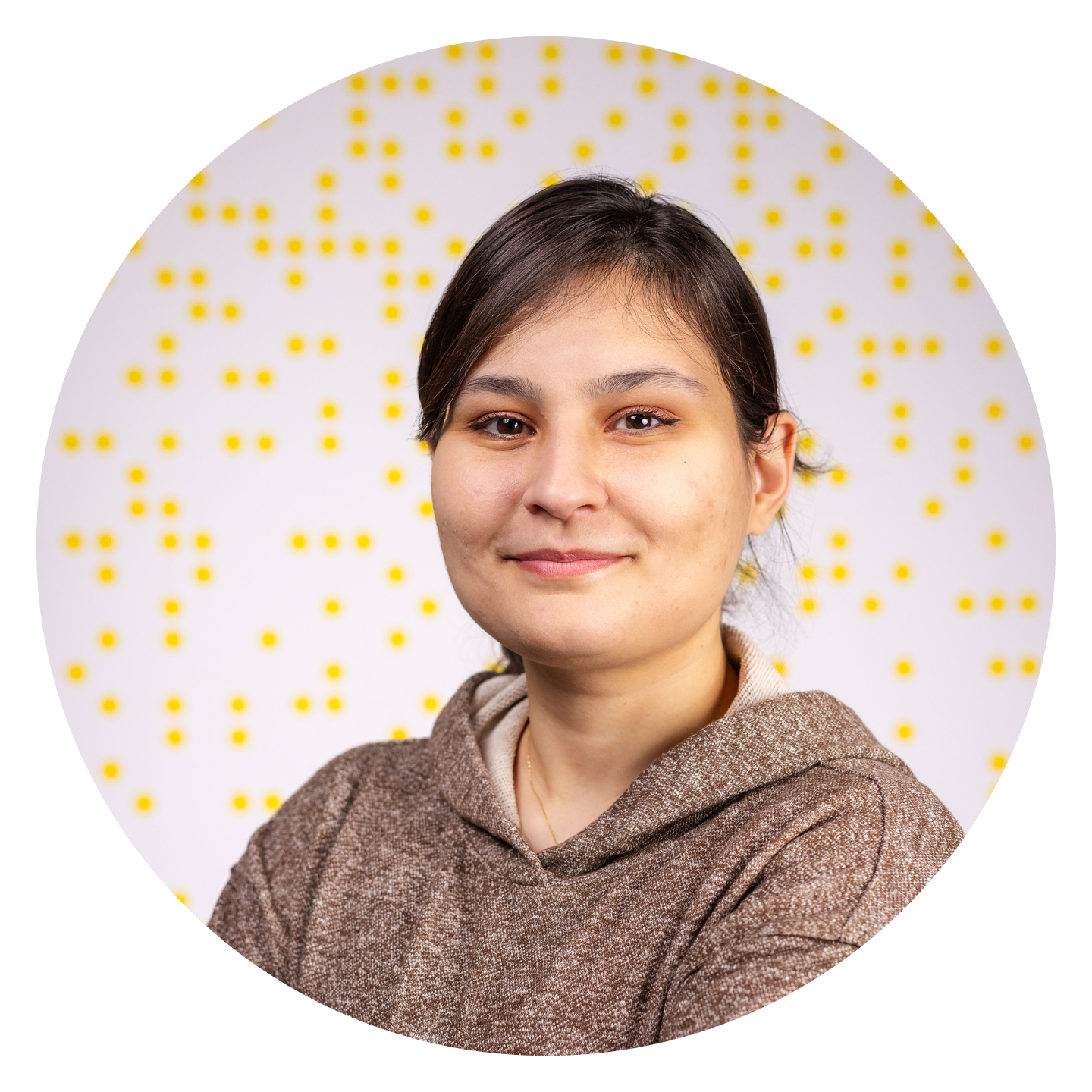Shape is the U of A Strategic Plan for 2023-2033 and “interdisciplinary” is one of the keywords mentioned multiple times in this plan. I was honoured to have the chance to ask some questions from Dean Marvin Washington, Dean and Vice-Provost of the College of Social Sciences and Humanities about interdisciplinary research to grasp the importance of this term as a graduate student.

CSSH Dean Marvin Washington
What are the advantages of transcending traditional disciplinary boundaries? Can we assume that it can counteract over-specialization?
This is often the first question people ask when we talk about interdisciplinary. When problems present themselves not in a disciplinary way, we move on to an interdisciplinary approach to solve them. Take homelessness, for instance. It is not just a social, financial or family problem. To approach it, we cannot view it from a certain angle. It is like looking at a certain part of a puzzle and struggling with how pieces fit together. We should put all the pieces together and think about the whole puzzle. So, interdisciplinary is for understanding these problems that are multi-faceted. I always say all the easy problems are solved, so all that is left are the hard problems. We are moving to the evolutionary area, which is the interdisciplinary area. Just to clarify, I still think disciplinarity plays a significant role in solving problems, but it does not mean that we should always start there to tackle every issue. I do see them as an AND view, not the OR. We need both disciplinarity and interdisciplinarity to solve the problems that are considered to be critically important today.
What are the challenges of going beyond your field of expertise?
When you are doing projects in your discipline, you are usually very narrow and deep in your expertise. So switching mindsets, going back to the start and collaborating with people who have narrow and deep focuses but in different areas of expertise is a challenge. How we stay open to the mindset that the answer is not in any of the disciplines and understanding the answer lies in collaboration is the main challenge. Especially in terms of who takes the lead because academics are not usually trained that way.
That is exactly what I wanted to ask next! Based on your remarkable activities and knowledge about leadership and its importance, I was wondering how you define leadership in a project that involves more than one discipline.
I use a very practical definition of leadership. I think leaders are people who get things done with others who may not want those things done. You find points of connection, you focus on goals and vision and focus on how to get the best of everyone. In Marvin’s view, in terms of interdisciplinary, I say it is about how you break the ties. You see something in qualitative research; your lens might be completely different from my lens. How do we come to an agreement on who will choose what path we are going to follow? That depends on our collaboration skills and how well we work with others. Maybe the answer is not my answer or your answer; are we open to a third answer? Maybe we need a third collaborator whose expertise is needed and they can bridge us together. That is teamwork. On my CV, I think I am unique in only having a few solo projects since I usually do team projects with people with completely different backgrounds than mine, and we bounce ideas off each other. We make sure what we are looking at is not jaded by our biases or our training but reveals some insights, so leadership naturally occurs in this setting.
What other skills do we usually need to embark upon the interdisciplinary or multidisciplinary journey?
Listening! When I think about big interdisciplinary projects, especially wicked problems that do not have obvious and simple solutions, the question is: can I actively listen or will I dismiss everyone because I think I have enough information myself? And a sense of humility is another trait that is critical when it comes to teamwork. These are not natural to academia because you have put many years into an area, and when I ask you to put that all aside and to look at something with a fresh eye, it could be very hard. When you ask professors with graduate students what they are looking for in their graduate students, the trait that always comes up is critical thinking skills. It requires an element of curiosity about the answers, listening to all the voices and the ability to articulate at the level of the problem and situation in front of them. It is like wanting to use crayons, and you want to use red, but there are many shades of red, so which one? It is not always the colour blue and red; sometimes it is the shades of one colour, and choosing that needs skills I mentioned earlier.
How does interdisciplinary research move forward? Can collaboration result in creating new disciplines?
This is how knowledge moves forward. Years ago, when we thought of disciplines, it was different; some problems did not fit into the mold of one discipline, so we created new disciplines. For instance, management as a discipline was created because we needed cooperation between education, sociology, political sciences and economics… so a new discipline called management or leadership was created. This happens over time and is evolutionary.
How can graduate students contribute to research that goes beyond their field of study? Will more opportunities appear in the future after graduation?
Here is the ideal and naive answer. The first thing is to take a minute to explore your emails and attend research talks outside of your discipline as a 90-minute investment of your time. It will create an additional connection in the back of your mind. Next, go to lunch with someone who is not in your area. Often, graduate student associations are grouped by discipline, so they tend to gravitate toward people in the same discipline. I would suggest you try to break that barrier and look for inspiration by just talking to people. As an analogy, before I get invited to be in an all-star team, I first should be an all-star player; that is a requirement. So teamwork should not be prioritized over individual work. If you can do both, you will have a promising future in the interdisciplinary world.

